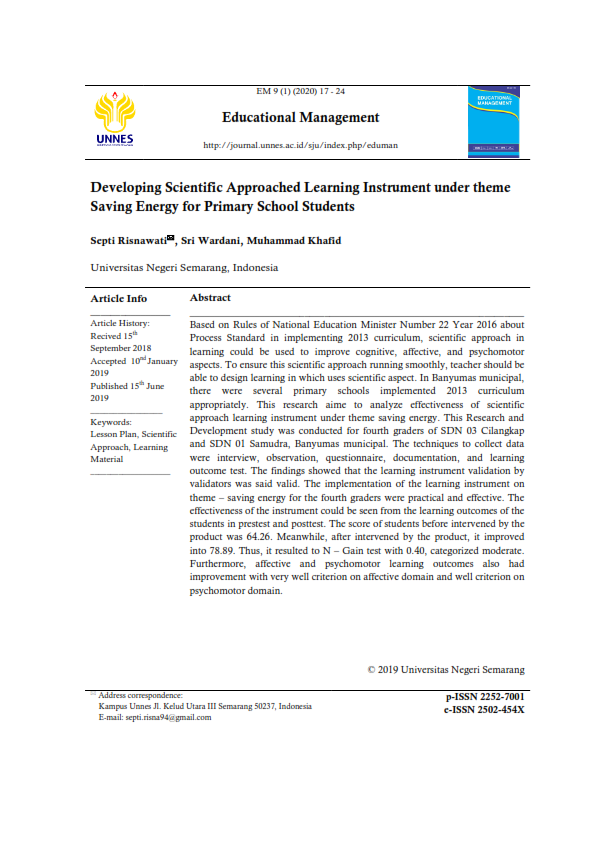Developing Scientific Approached Learning Instrument under theme Saving Energy for Primary School Students
Abstract
Based on Rules of National Education Minister Number 22 Year 2016 about Process Standard in implementing 2013 curriculum, scientific approach in learning could be used to improve cognitive, affective, and psychomotor aspects. To ensure this scientific approach running smoothly, teacher should be able to design learning in which uses scientific aspect. In Banyumas municipal, there were several primary schools implemented 2013 curriculum appropriately. This research aime to analyze effectiveness of scientific approach learning instrument under theme saving energy. This Research and Development study was conducted for fourth graders of SDN 03 Cilangkap and SDN 01 Samudra, Banyumas municipal. The techniques to collect data were interview, observation, questionnaire, documentation, and learning outcome test. The findings showed that the learning instrument validation by validators was said valid. The implementation of the learning instrument on theme – saving energy for the fourth graders were practical and effective. The effectiveness of the instrument could be seen from the learning outcomes of the students in prestest and posttest. The score of students before intervened by the product was 64.26. Meanwhile, after intervened by the product, it improved into 78.89. Thus, it resulted to N – Gain test with 0.40, categorized moderate. Furthermore, affective and psychomotor learning outcomes also had improvement with very well criterion on affective domain and well criterion on psychomotor domain.


